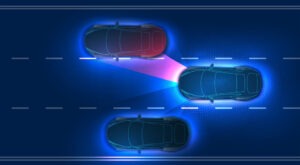
The statutes leave the definition open to the discretion of the officer, which means that you might think the person who hit you was driving recklessly but the officer ticketed the driver for another reason. Don’t let this stop you from filing a claim against the defendant. In many cases, our investigators will find that the driver was reckless and will testify on your behalf. Contact a Fort Myers car accident lawyer if you were hit by a reckless driver to discuss your case.
Offender Penalties
A person who is charged with reckless driving faces first-degree misdemeanor penalties if he or she causes harm to another person or property. However, if the defendant causes serious bodily injury, he or she could be charged with a third-degree felony. Florida defines serious bodily injury as an injury that “creates a substantial risk of death, serious personal disfigurement, or protracted loss or impairment of the function of any bodily member or organ.”
The defendant may also spend time in jail, have to pay a fine or both depending on several factors including his or her driving record and the degree of recklessness the defendant was found to be driving with.
Additionally, the defendant must also pay $5, which is added to the fine, to the Department of Revenue. That money is deposited in the Emergency Medical Services Trust Fund. Finally, if the defendant is charged with reckless driving and was under the influence of drugs, alcohol or other controlled substances, the defendant will have to take a DUI class.


Expect More, Receive More: Legal Support That Feels Like Family
Crash Statistics
In 2018 in Sarasota County, according to the Florida Highway Safety and Motor Vehicles, there were 6,464 wrecks which resulted in 3,654 injuries and 50 fatalities. Of the total crashes, 62 were ticketed as reckless driving. The entire state saw 401,851 crashes with 254,484 injuries and 3,150 fatalities. Of those, 5,797 accidents had a driver that was cited for some form of reckless driving.
Injuries You May Suffer in a Wreck
Depending on the circumstances of the wreck, you could suffer minor injuries—or even no injuries—or you could suffer catastrophic injuries. Factors include how you were hit, at what speed you and the other person were traveling, the size of your vehicle and the size of the other person’s vehicle. Another factor is whether more than two vehicles are involved. Injuries may include:
- Cuts, scrapes, abrasions, and bruises;
- Strains, sprains and pulled muscles;
- Fractures;
- Compound fractures;
- Dislocated joints;
- Burns;
- Head and brain injuries;
- Spine, back and neck injuries;
- The loss of a limb;
- Paralysis; and
- Death.
Any open cuts have a chance of becoming infected if not taken care of properly or if you have an underlying condition that causes the wounds to heal slowly or not at all. Conditions that may hinder healing include diabetes, cancer, auto-immune issues and medications such as chemotherapy that lower your white count.
Some injuries may cause problems later in life. For example, a concussion is believed to lead to chronic traumatic encephalopathy (CTE), which is also common in sports players who suffer concussions. Even one concussion in your life could lead to CTE. Be sure to discuss other health issues with your attorney, even if you don’t think they could cause your accident injuries to heal slowly or cause pain and suffering years later.
Damages Available
If you are injured in an accident, three types of damages are available to you: economic damages, non-economic damages and punitive damages. Economic damages are often referred to as special damages, and non-economic damages are often referred to as general damages. Punitive damages are only awarded in certain circumstances.
Economic Damages
Special damages have a set amount, thus the term economic damages. They may include:
- Medical expenses for injuries related to the accident;
- Physical and occupational therapy;
- Psychological therapy;
- Accessories, including crutches, braces, casts, and wheelchairs;
- In-home services;
- Medical expenses for injuries or conditions that are exacerbated because of the accident;
- Lost wages;
- Replacement or repair of personal property;
- Future medical expenses including additional surgeries, medical care, physical therapy, occupational therapy and psychological therapy; and
- Future lost wages.
Future medical expenses and future lost wages may sometimes be categorized as non-economic damages. While they do have a specific dollar amount attached to them, that amount is unknown. Insurance companies use a formula to determine what future lost wages and medical expenses may be depending on the type of injuries you are suffering from. This is why it’s important to advise your attorney of any underlying conditions that may hinder healing.
For example, if the insurance company estimates that a bad burn should heal within four weeks, but you have diabetes, which could delay healing and cause you to have additional medical expenses, the burn may not heal properly for six months or longer. The burn also has a higher risk of getting infected, which could make it take even longer to heal. You don’t want to be caught short of money to pay those medical expenses and while you are out of work waiting for the burn to heal enough so that you can do your job.
If you are suffering from post traumatic stress disorder, depression or any other psychological condition as a result of the accident or because of the injuries from the accident and are getting therapy, be sure to let your attorney know so that those expenses that are not covered by insurance may be listed as part of your medical treatment. Many people often suffer after an accident, especially those who cannot do the things they used to do because their injuries prevent it. If you believe that you may be in therapy for quite a while, your doctor may have to discuss the length of treatment and/or the seriousness of your mental injuries with your attorney.
Non-Economic Damages
General damages do not have a set dollar amount to them and are only awarded for long-term or permanent injuries. In most cases, the injuries must be expected to last longer than a year. Non-economic damages may include:
- Pain and suffering if you have pain that lasts many months or is expected to last the rest of your life, or if you need therapy for psychological issues that have a long-lasting effect because of the accident. Post traumatic stress syndrome is a common condition people go through after a bad accident and could require therapy for years. Awards for pain and suffering may be for physical or mental distress and the amount awarded is based on the seriousness of the pain and the seriousness of future pain and suffering.
- Loss of companionship if you are not able to enjoy doing things with your family that you once enjoyed, such as outings or attending your children’s extracurricular activities. You must also claim other injuries for your spouse to claim loss of companionship.
- Loss of consortium if you are no longer able to have a physical relationship with your spouse because of injuries suffered in the accident. As with loss of companionship, you must claim your injuries for your spouse to claim loss of consortium.
- The loss of a limb or the loss of the use of a limb that was fully functional.
- The loss of a sense, such as your eyesight.
- Inconvenience if you are not able to do regular tasks around the house such as mowing the lawn, cooking, cleaning and house and property maintenance and must hire someone to do the tasks you used to do.
Because insurance companies and attorneys estimate how long you will be out based on the type of injuries you are suffering from, be sure to document all injuries and treatments for your attorney, including injuries that were existing but were exacerbated by your new injuries. You could easily come up short if the insurance company estimates a certain type of injury heals sooner than it will heal.
Punitive Damages
This type of damage is only awarded to the plaintiff if the defendant is found to be grossly negligent. In many cases, someone who is driving recklessly is found to be grossly negligent. Generally, a court must order punitive damages—this type of award is not part of a settlement. Even if the defendant does not receive a citation for reckless driving, the court may still find that the defendant was grossly negligent and could still award punitive damages.
Behavior that might cause the court to award you punitive damages may include:
- Driving under the influence of drugs, alcohol or even a prescription medication if the defendant knew that his or her actions could be adversely affected by said medication.
- Excessive speeding.
- Excessive lane-changing, especially at a high rate of speed.
- Driving on the wrong side of the road or passing in a no passing zone on a heavily traveled road.
- Any action that is done purposefully with the intent to harm another driver, including bumper tapping or brake checking.
No-Fault Insurance
Florida is a no fault state, which means that if you are in an accident, your insurance company pays for your expenses and losses if you are in an accident even if the accident was not your fault. Your insurance should cover:
- Medical expenses;
- Surgical expenses;
- Funeral expenses in the event of a death of a loved one; and
- Disability insurance benefits.
Florida statutes also dictate that the insurance may provide a limited amount for pain and suffering, mental anguish and inconvenience. If your insurance does not cover everything you may be entitled to, which it probably won’t if your injuries are serious, you may bring a lawsuit against the at-fault person and/or his or her insurance company.
No-Fault Insurance Coverage
Your no-fault insurance covers only a percentage of expenses you may incur, including:
- 80 percent of medical, surgical, dental, X-ray and rehabilitative services up to the amount your insurance policy coverage is for;
- $2,500 if the injuries were not considered an emergency medical condition;
- Disability benefits of 60 percent of your gross income or for lost earning capacity, plus the 60 percent of the amount you have to pay others for services you would normally do; and
- $5,000 in death benefits per individual in addition to any medical and disability benefits that the claimant may have used.
Exclusions include if a covered individual is in a motor vehicle that is not insured under the policy, if the person who was operating the vehicle was not authorized to operate the vehicle, if the injured person’s actions and/or inactions contributed to his or her injuries if the person was injured while committing a felony or if the person caused the injuries on purpose.
Many people opt for the minimum coverage on their insurance policies, but you are only hurting yourself should you get into an accident because it’s your insurance company that pays for your medical, disability benefits and more.
While everyone who is driving is supposed to have insurance, you are taking a chance on the person who hit you having insurance. Or, if that person does have insurance, he or she may not have enough to cover your injuries and other damages you are entitled to. If the person is not rich, you may have a hard time collecting, especially if punitive damages are awarded to you.
If you were in an accident with a reckless driver, contact an automobile accident injury lawyer who offers a free case evaluation so you may learn more about your rights under Florida’s no-fault insurance laws.






